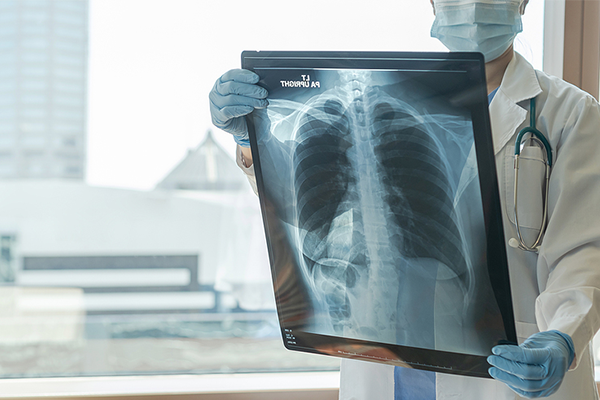Lung cancer is the second leading cause of death in both men and women. Augusta University Health offers a lung cancer screening program to help detect lung cancer earlier. This screening program is important just like mammograms are important for the early detection of breast cancer, colonoscopies are important for the early detection of colorectal cancer and prostate screenings are important for the early detection of prostate cancer.
“We started our lung cancer screening program a number of years ago, said Dr. Shaheen Islam, chief of the Division of Pulmonary and Critical Care Medicine in the Department of Medicine at the Medical College of Georgia. “And, it has been very successful in helping us detect lung cancer early which gives our patients a better chance of a cure and survival. Before the program, we wouldn’t typically see lung cancer patients until their cancer had advanced to a later stage and started causing symptoms such as coughing up blood or shortness of breath. Now that we can diagnose them before those symptoms show up, we have more therapy options to treat the cancer.”
Another symptom that is common in patients with advanced lung cancer is called plural effusion, which is fluid around the lungs. This can make patients short of breath. This can be even worse for patients who were smokers, because smoking is the leading cause of lung cancer. When they smoke, they have COPD, which also leaves them short of breath.
Lung cancer patients can present with shortness of breath, nodules/lesions on the lung or in the lymph nodes in the lung and chest, and fluid around the lung. “When we first see these patients, we ask for a CT scan because the CT scan can help us evaluate the location of the nodule, the size of the nodule, and the best route to take to get a sample of the nodule to do a biopsy. That biopsy will tell us whether it is cancer or not.”
Navigational bronchoscopy is used to get a sample of the nodule. During this procedure, a scope is put into the person’s mouth and down their throat into the lung space. The patient lays on a magnetic board and which helps to locate the nodule/lesion in the lung. “We’ve been doing navigational bronchoscopy at Augusta University Health for about four or five years now. The bronchoscope has an ultrasound attachment on the end of it that can locate lesions in the lymph glands. It has a needle on the end of it that we can use to secure a sample of the lesion for the biopsy.”
Dr. Islam is working to acquire a new device called a robotic bronchoscopy that you use a joystick, like a video game, and guide the scope to the lung to secure a sample of the lesion. “We hope to have that robotic bronchoscope purchased before the start of the next fiscal year.”





